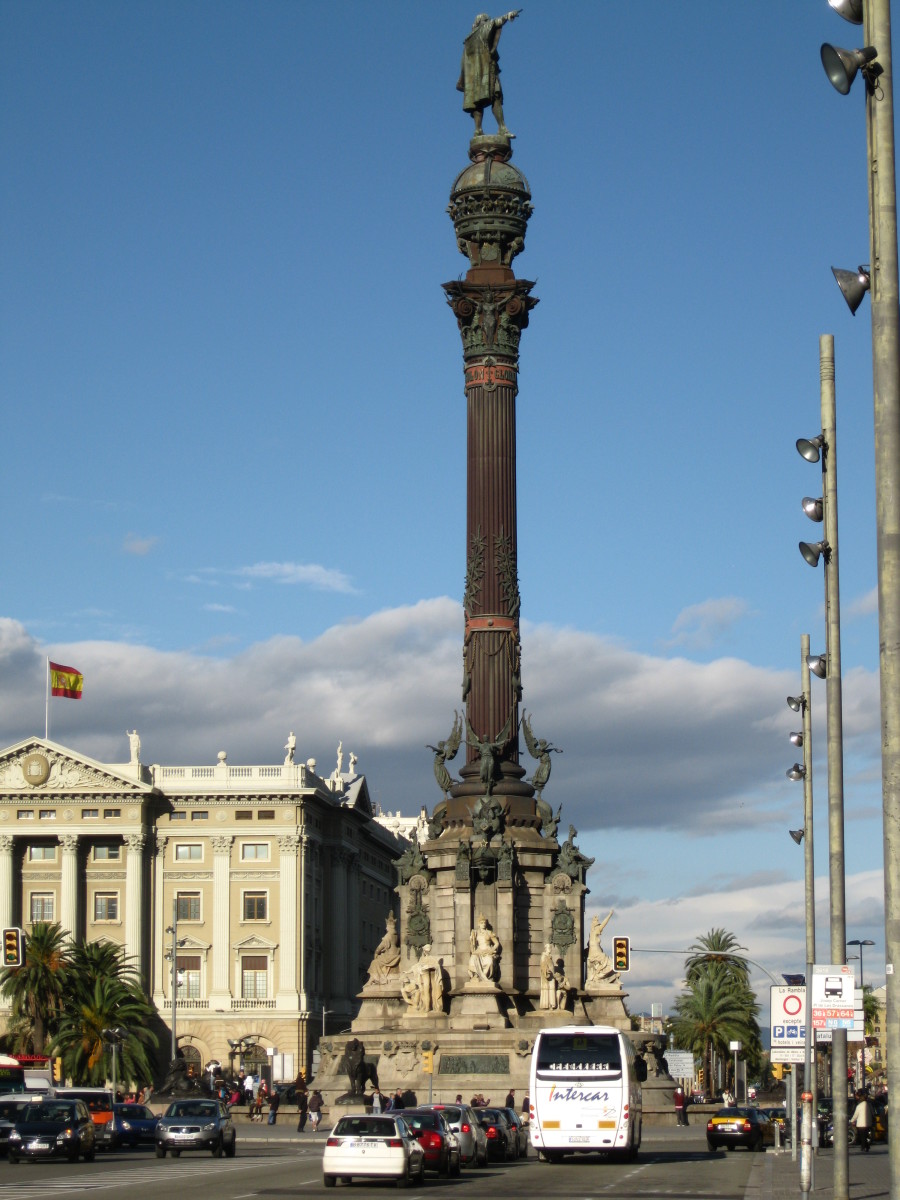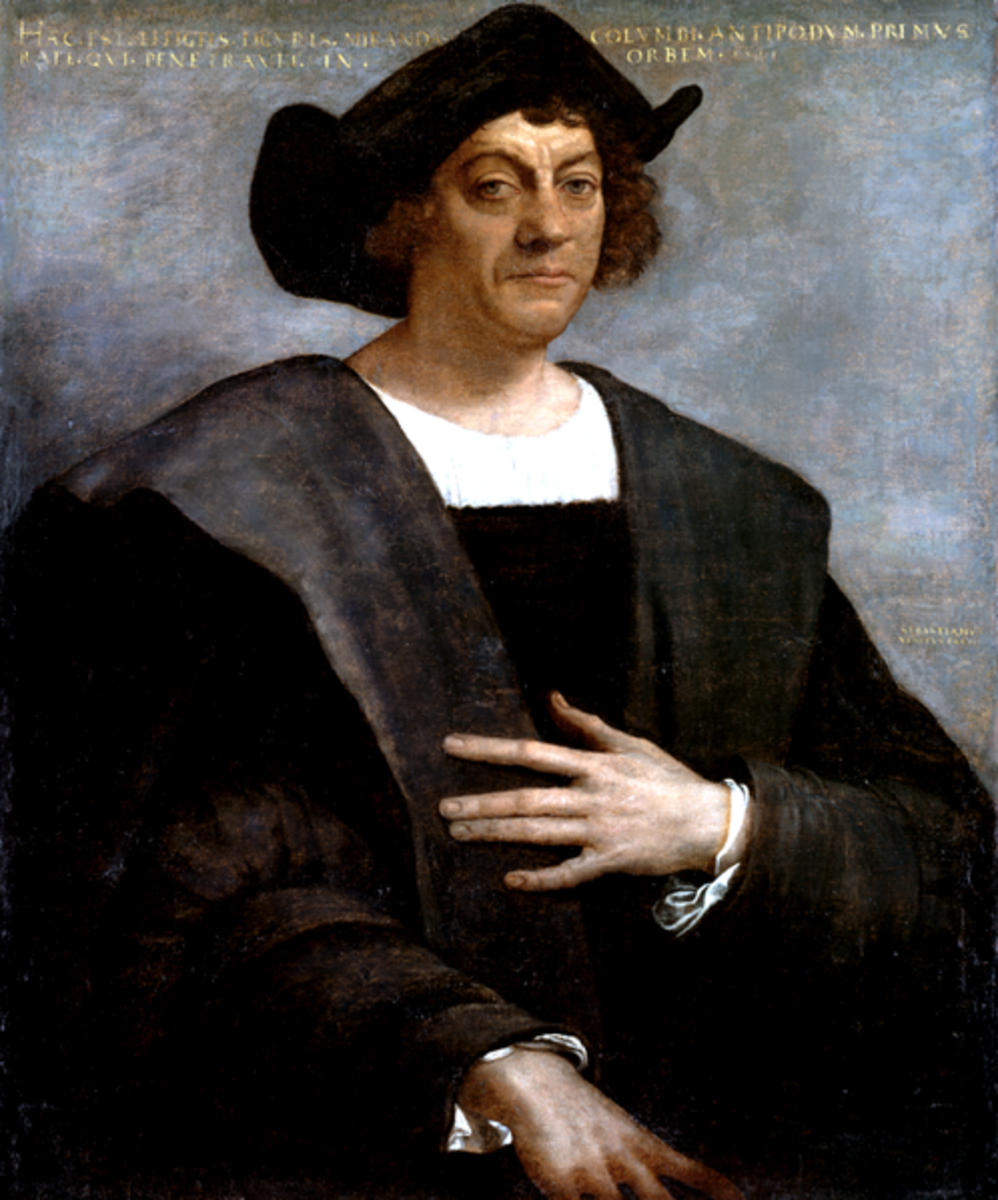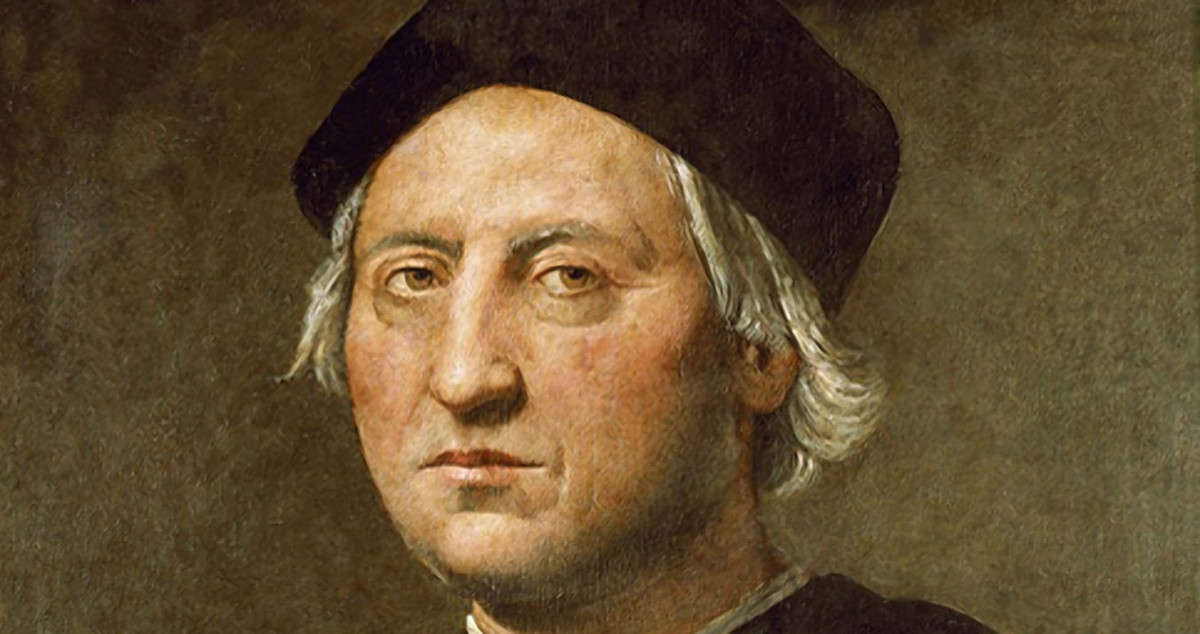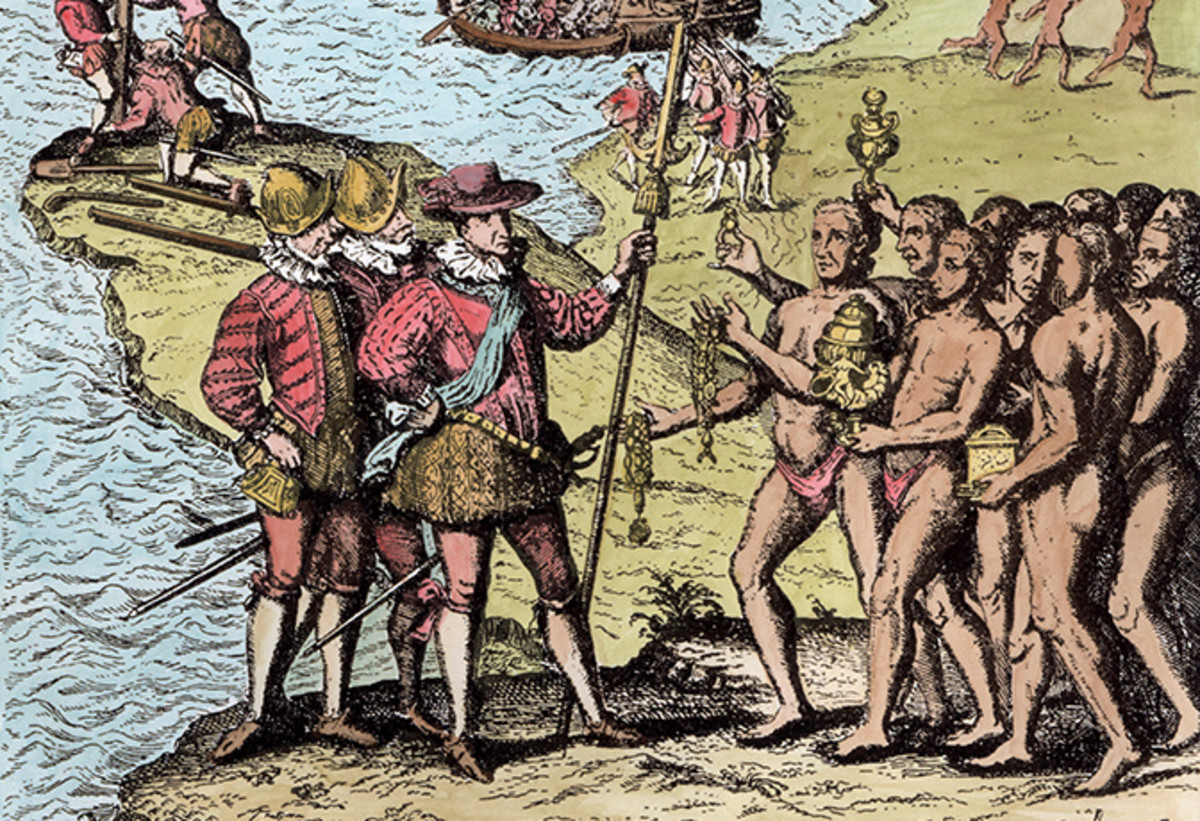Why Celebrate Columbus Day
Every October 12, the United States and several other countries have a holiday. In the United States, the celebrations are always on a Monday to give workers a three-day weekend. Traditionally, this has been held in honor of Christopher Columbus's discovery of the New World. It was on this date that the fleet of the Genoese explorer that was on the edge of a mutiny sighted land in the distance. It is now believed that this was probably Watling Island, a small strip of land in the Bahamian chain. Columbus named it San Salvador and claimed it for Spain. It is this "discovery" that gets celebrated, although there is quite a bit of controversy related to Columbus.
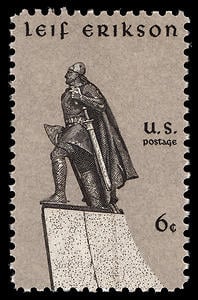
Who Really Discovered America?
It is pretty obvious that Cristobal Colon (Christopher Columbus's actual name) did not discover the New World. Columbus himself recognized that there were many people on the many islands that he visited on his four trips to the Western Hemisphere. How did they get here? The most common explanation is the Bering Land Bridge, as strip of land that connected Siberia and Alaska until enough glaciers melted to raise ocean levels sufficiently to submerge the bridge. From there, the Native Americans diffused throughout the Americas in short order.
The most recent estimates as to the actual population of the New World when Columbus arrived is somewhere between 60-70 million. It is quite obvious that Columbus did not discover America. There are also legends of other peoples making it to a land in the west, one of the most famous of which is the legend of St. Brenden, an Irish monk. It is possible that a stray boat from Europe, Africa, or Asia occasionally made it to the Western Hemisphere, but any such visits made little impact.
The first European to definitely make it to the New World was Leif Ericson, a Viking who reached Newfoundland around AD 1000. This voyage was questioned for a long time, but archaeological discoveries in the areas inhabited by the Viking colony definitely made it clear that Ericson made it to the New World about 500 years before the more famous Columbus.
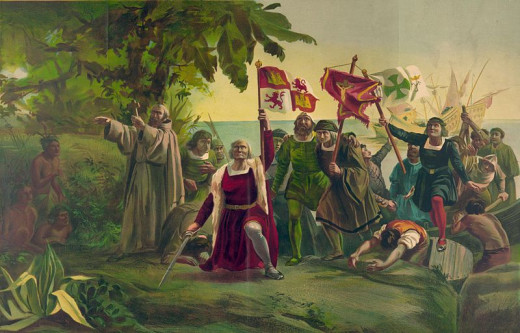
Was Columbus a Great Explorer?
There is no doubt that Columbus was a daring explorer. He was not alone in thinking that the riches of China and India could be reached by sailing west. Most educated people believed the world was round, unlike the common argument that people thought the world was flat. The Genoese mariner was bold enough to get funding for such a voyage.
Columbus never actually understood that he reached another hemisphere. He went to his grave thinking he reached Asia, rather than what would become known as the Americas. He called the indigenous peoples "Indians" because he thought he was in the East Indies. He was mistaken in his ultimate success.
One thing that makes Columbus a controversial character was his treatment of the people that he met. His diary says that he thought they could be "made to work" for the Spanish, and Columbus tried to enslave the Indians. The arrival of the Europeans was devastating to the people who lived in the Americas. It is estimated that around 90% of the population died as a result of European warfare and disease. There is no doubt that Columbus was a great explorer, but the ramifications of his "discoveries" make the celebration of Columbus Day quite controversial.
Why Is Columbus Important?
In spite of the negative results of his explorations and the fact that he did not "discover" the New World, Columbus is nevertheless important in world history. It was the voyage of Columbus in 1492 that spurred continuous interaction between the two hemispheres. It also led to the rise of Spain as a world power because of the economic exploitation that sent massive amounts of gold and silver that made their way back to the mother country.
The Columbian Exchange
Scholars have also talked about the importance of the diffusion of various foodstuffs, animals, technology, and diseases that came about after Columbus. Alfred Crosby was one of the first to discuss this environmental history in his book first published in the 1970s that was titled The Columbian Exchange. Crosby emphasized the new food such as potatoes and maize (corn) that made it to the Old World and increased caloric intake in Europe, Africa, and Asia.
New Animals
The New World had no beasts of burden. Only dogs and llamas were actually domesticated. The Europeans brought cows, horses, and pigs, and these new animals greatly changed the environment. Pigs and cows that ran free would frequently destroy native crops and lead to anger from the Indians. Horses and more advanced weaponry aided the Europeans militarily as they defeated the great Empires of the New World.
Sharing Diseases
Finally, disease caused problems for both regions. The Europeans brought childhood diseases like measles and mumps and nasty bugs like smallpox. All were equally deadly to the indigenous peoples and led to a massive number of deaths as mentioned above. The Indians probably gave the Europeans a gift, as well. It is widely believed that contact with the Native Americans brought syphilis to the Old World. This was especially virulent in the first generation in Europe.
It quickly becomes quite evident that Columbus was important because of the Columbian Exchange and the fact that continuous interaction between the cultures essentially began after Columbus (although it is likely that it would not have been long before someone else made the "discovery").


